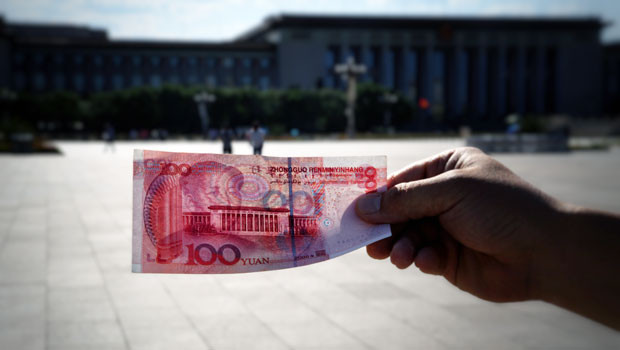Asia report: Stocks fall after Fed hike, data deluge

Most stock markets in Asia closed in the red on Thursday, as investors reacted to the US Fed’s 50-basis point interest rate hike overnight.
In Japan, the Nikkei 225 was down 0.37% at 28,051.70, as the yen weakened 0.94% against the dollar to last trade at JPY 136.75.
Tech investing giant SoftBank Group was up 0.77%, while robotics specialist Fanuc was down 0.48% and Uniqlo owner Fast Retailing slid 0.79%.
The broader Topix index was off 0.18% by the end of trading in Tokyo, settling at 1,973.90.
Trade data for Japan beat expectations in November, it was revealed earlier in the session, with exports rising 20% year-on-year, and imports jumping 30.3%.
Both of those readings were higher than what economists polled by Reuters had picked, which was a respective rise of 19.8% and 27%.
The increases led to a wider-than-anticipated trade deficit of JPY 2.02trn for November, though that was still narrower than the JPY 2.16trn deficit posted in October.
On the mainland, the Shanghai Composite slipped 0.25% to 3,168.65, and the technology-centric Shenzhen Component gained 0.32% to 11,358.11.
Fresh data on industrial output missed expectations in the People’s Republic, with industrial production growth slowing to 2.2% in November from 5% in October.
Economists polled by Reuters had pencilled in a rise of 3.6%.
Retail sales, meanwhile, fell 5.9% year-on-year in November, which was more than the 0.5% decline in October and the 3.6% expectations set by Reuters polling.
“We expect the Chinese economy to remain at a low ebb before it gets better, with exit waves likely to last several months,” said Duncan Wrigley at Pantheon Macroeconomics.
“China has launched a vaccination drive among the elderly, which should ensure that much of the vulnerable population is better protected by the first quarter of 2023.
“We expect the Central Economic Work Conference (CEWC) to echo the politburo’s call to support domestic demand in 2023, including consumption, private sector investment, the property sector and technological upgrading.”
Wrigley noted that no date had been announced for the CEWC, but it should be confirmed shortly.
“Monetary easing should be part of the mix, including a rate cut in the second quarter, as China reopens.”
South Korea’s Kospi was 1.6% weaker at 2,360.97, while the Hang Seng Index in Hong Kong slid 1.55% to 19,368.59.
Trade data from South Korea was flat on the month, with imports up 2.7% and exports tumbling 14% - both in line with October’s readings.
That resulted in a trade deficit of $6.99bn, narrowing somewhat from the $7.01bn deficit reported for the prior month.
Import prices were up 14.2% year-on-year in November, slowing from 19.8% growth in October, while export price growth slowed to 8.6% from 13.7%.
The blue-chip technology stocks were weaker in Seoul, with Samsung Electronics down 1.98% and SK Hynix losing 1.96%.
Oil prices were slightly higher as the region went to bed, with Brent crude futures last up 0.07% on ICE at $82.76 per barrel, and the NYMEX quote for West Texas Intermediate 0.06% firmer at $77.33.
In Australia, the S&P/ASX 200 was down 0.64% to 7,204.80, as the country’s unemployment rate remained in line with market forecasts.
The Australian Bureau of Statistics said the jobless rate remained flat at 3.5% in November, while the labour participation rate was stable at 66.7% and the employment-to-population ratio was 64.4%.
Across the Tasman Sea, the S&P/NZX 50 managed gains of 0.15% to 11,601.99, with airport operator AIAL falling 0.49%.
The company’s shares were placed in a trading halt after the mayor of the country’s largest city Auckland claimed in a meeting of councillors that the firm, 18% municipally-owned, was planning an equity raise to build a new terminal.
When pressed by his elected colleagues, mayor Wayne Brown said the company had made no such announcement, and AIAL itself told the market that it had “no plans” to conduct an equity raise.
Mayor Brown’s disputed claim was likely part of his ongoing plan to convince his fellow elected representatives to agree to offload the city’s stake in the airport operator in a controversial asset sales agenda.
The down under dollars were both weaker against the greenback, with the Aussie last off 1.46% at AUD 1.4781, and the Kiwi retreating 1.3% to NZD 1.5691.
Reporting by Josh White for Sharecast.com.